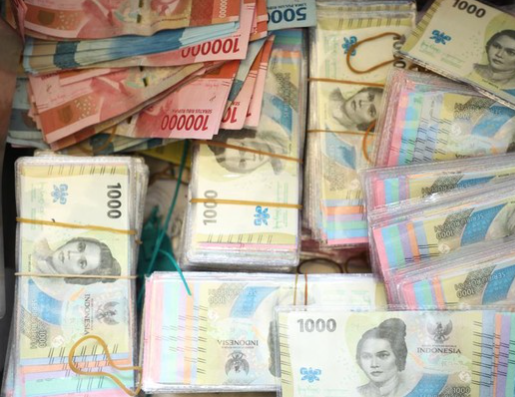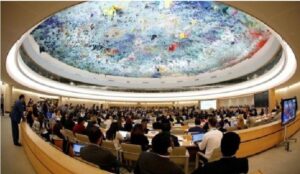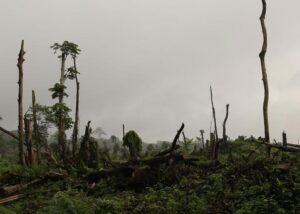
STRATEGIC ASSESSMENT-Jakarta. President Jokowi will officially prohibit the export of bauxite ore starting June 2023. The Trade Ministry emphasized its readiness to face the Chinese lawsuit in the World Trade Organization (WTO) related to the policy of prohibiting bauxite ore exports, despite the fact that China receives 90 percent of Indonesian bauxite exports.

“We are ready to deal with the consequences of the President and government’s decision to prohibit bauxite exports in order to strengthen Indonesia’s industrialization process,” said Trade Ministerial Special Staff Bara Krishna Hasibuan.
President Jokowi alluded to China’s potential World Trade Organization (WTO) lawsuit over the government’s plan to halt raw bauxite exports. “We are ready for nickel now. We will stop bauxite again in June. Stop it. In fact, be careful, 90 percent of our exports of raw bauxite materials go to China.”
“I don’t know if China will sue us or not. If it sues, that means the European Union is suing us for nickel and China for bauxite, because 90 percent of our raw material exports go there,” Jokowi said.
However, Jokowi said Indonesia would continue to make efforts to gradually halt raw material exports. Indonesia will stop exporting raw materials ranging from tin, copper, to gold, after nickel and bauxite.

State-Owned Enterprises Minister Erick Thohir in CNBC Indonesia’s 2023 Economic Outlook program on Tuesday addressed the ban on bauxite. Erick said Indonesia is currently one of the world’s centers of economic growth due to its abundant natural resources, which includes bauxite, and strategic location. Erick went on to say that 90 percent of Indonesia’s bauxite was exported to China, adding that China is the world’s leading producer of heat-absorbing glass.
The value of Indonesia’s nickel exports surged tenfold in five years after it forced buyers to set up refineries in the country. Now Southeast Asia’s biggest economy plans to use that blueprint to catapult the nation into the ranks of higher-income economies by processing everything from copper to fish.
The goal is to double per-capita GDP to $10,000 by 2045, which would bring Indonesia close to the World Bank’s high-income threshold. At the same time, the shift would create new centers of growth outside Java, its richest and most populated island.
“We’re using nickel as the prototype,” said Investment Minister Bahlil Lahadalia. “It’s silly. We have the raw materials, but we sell it to be refined overseas then we import it back. Where did we leave our brain?”
Statistics Indonesia (BPS) Deputy Pudji Ismartini said Indonesia’s annual inflation reached 5.47 percent in February, with the Consumer Price Index (CPI) rising from 108.24 in February 2022 to 114.16 in February 2023.
The BPS also recorded that the number of foreign tourists visiting the country in January 2023 reached 735,950, an increase of 503.34 percent compared to January 2022 or year-on-year (yoy) which only amounted to 121,980.

While attending several U.N. agendas in Geneva, Switzerland, Foreign Affairs Minister Retno Marsudi requested EU countries eliminate discriminatory policies against palm oil and support Indonesia’s sustainable palm oil policy, including by granting market access to palm products that have received Indonesian Sustainable Palm Oil (ISPO) certification.
Overshadowed by tougher antimarket policies to stabilize the price of cooking oil at the government-fixed level and a weakening palm oil market, the Indonesian Palm oil Association (Gapki) will convene its national conference, held once every five years, in Bali on March 8-10.
As the representative of the upstream palm oil industry, Gapki will discuss the prospects, key issues and strategies for multistakeholder efforts to rise to the emerging challenges faced by the industry. A timely and correct response by the organization in engaging the government and other key stakeholders to address any threats will ensure palm oil can thrive sustainably.
Indonesia, being one of the world’s largest producers and exporters of natural resource commodities, has been positively impacted by the global commodity windfall in the past two years.
The commodity boom, which was characterized by a surge in prices of several major commodities, had a significant impact on Indonesia’s current account and fiscal balances. The current account balance is an important indicator of a country’s external health sector, and the fiscal balance is a crucial indicator of a government’s financial health and its ability to meet its financial obligations.
Indonesia has achieved a notable accomplishment of booking a current account surplus, a condition which had not been seen since 2011. Specifically, the country’s current account balance recorded a surplus of 1.0 percent of the gross domestic product (GDP) in 2022, following a surplus of 0.3 percent of the GDP in 2021.

The Environment and Forestry Ministry detected 81 hot spots indicating forest and peatland fires in several areas in Indonesia this week. The ministry also stays alert over the appearance of hot spots in the northern parts of Sumatra Island, such as Aceh, which had experienced forest and peatland fires a few days ago.
However, the forest and peatland fires in Aceh had optimally been handled, Environment and Forestry Minister Siti Nurbaya said, adding that her ministry also pays attention to North Sumatra, Riau, and West Kalimantan due to their large areas of tropical rain forests and peatlands.
Siti said the government has already had a permanent solution for tackling forest and peatland fires in Indonesia, starting from monitoring hot spots, patrolling, and managing land without burning, to modifying the weather.





